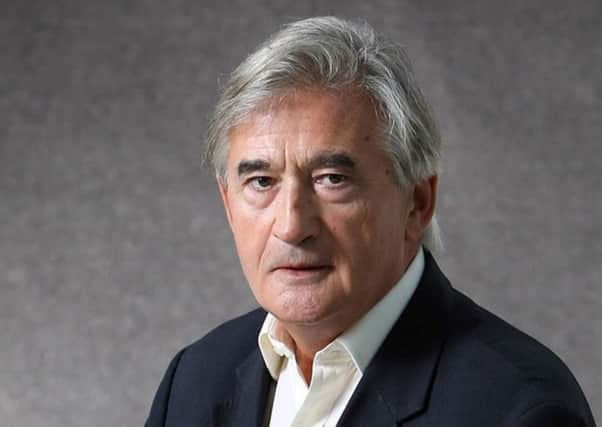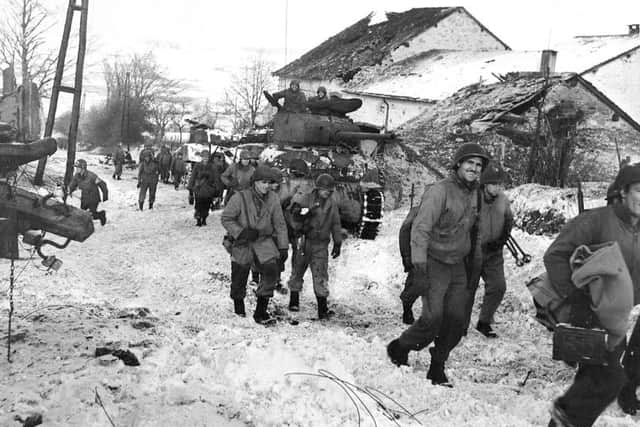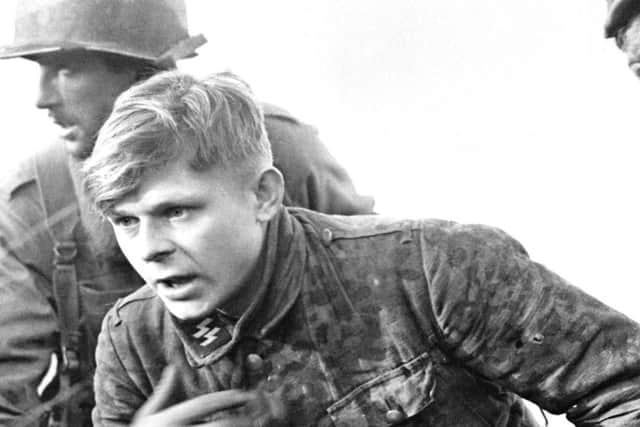Antony Beevor: The Second World War and lessons from history


Few, if any, events hold greater sway over people’s imagination than the Second World War.
It is more than 70 years since this colossal conflict - which claimed an estimated 60 million lives - finally ended and military historians continue to pore over what remains the darkest chapter in human history.
Advertisement
Hide AdAdvertisement
Hide AdAntony Beevor is among those that have returned to a subject that both intrigues and appals in equal measure. Beevor is one of our most eminent historians whose descriptions of grand sweeping events read more like Tolstoy than the dry troop movements of past military writers.


A former cavalry officer, his books have appeared in more than 30 languages with more than six million copies sold and counting. His astonishing account of the battle of Stalingrad not only catapulted him to international fame in 1998, it took military history into the bestseller lists.
His latest book, Ardennes 1944 – Hitler’s Last Gamble, went straight to No 1 on the Sunday Times Bestseller list. It charts Adolf Hitler’s ill-fated final stand in the snow-covered forests and gorges of the Ardennes which, involving more than a million men, became the biggest battle of the war in Western Europe.
Beevor will be discussing this as well as his long-standing fascination with the war when he appears at the Harrogate History Festival next month.
Advertisement
Hide AdAdvertisement
Hide Ad“The Second World War defined the modern age,” he says. “It had a global reach, it led to the end of colonialism in Africa and Asia and everybody was defined by it. My father fought in the war, though like most people he didn’t talk about it, and it loomed large as I was growing up.”


Decades later it still does. The Second World War, he says, offered people a clear moral choice that goes to the heart of human drama. “Novelists, historians and film-makers are still drawn to the Second World War because it is about a moral choice and that’s what fascinates me.”
Beevor was born a year after the end of the Second World War. As a child he suffered from Perthes, a condition which meant he had to spend time on crutches, and was bullied at school.
He overcame this and was educated at Winchester and Sandhurst, where he studied under the renowned historian John Keegan. A regular officer with the 11th Hussars he enjoyed his time in the Army but became bored while posted to a training camp in North Wales and wrote his first novel.
Advertisement
Hide AdAdvertisement
Hide Ad“My mother’s side of the family had all been writers and with the naivety and arrogance of youth I thought I could write, but thank God that was never published,” he says.


Beevor left the Army after five years to concentrate on writing. “I had to learn how to write because in those days there were no creative writing courses.”
He had a series of political thrillers published that enabled him to hone his craft. “The novels didn’t do badly, they got translated, but it wasn’t enough to live off,” he says.
It was then that his publishers suggested that he branch out into non-fiction. “They said ‘you’ve been in the Army, why don’t you write about military history?’”
Advertisement
Hide AdAdvertisement
Hide AdIt proved a smart moved as Beevor began carving out a reputation as a talented military historian, culminating in the success of Stalingrad which earned him a string of awards, including the first Samuel Johnson Prize and the Hawthornden Prize for Literature.


He says the timing of this particular book was fortuitous. “I started doing the research in 1994 and around that time Boris Yeltsin opened up the Russian archives.”
This gave him access to hitherto unseen files that shed fresh light on what happened at Stalingrad. “By 2000, Putin was starting to close the archives which meant no foreigners could get into them. So I was phenomenally lucky to have had this brief window.”
Beevor’s success revolves around a forensic eye for detail along with a storyteller’s gift for engaging the reader. However, this belies the painstaking amount of research that goes into his work.
Advertisement
Hide AdAdvertisement
Hide Ad“You need the money and time and it’s a vicious circle for young historians trying to break through. I was lucky that I’d got a certain level of recognition because it took me four years to write Stalingrad.”
Combing through historical archives can also be harrowing at times. “When I was doing the research for my Stalingrad book, a Russian colleague who was helping me was often in tears reading some of the archives. But it didn’t hit me till later. I’d look down at a plate of food and start thinking about how many people that would have fed.”
Today, there is violence and instability in countries like Syria and Iraq and we face the rise of global terrorism. But is the world a more dangerous place than it was 70 years ago? “It’s a different sort of danger,” says Beevor. “Hitler was determined to have a war and to use the cruelty of terror which made the Second World War unavoidable.
“Even if he had been killed in 1932 in a car crash there would probably have still been a conflict in Europe because of the ethnic divisions and anger with the Versailles Treaty. But the Second World War was annihilatory in nature and in this instance one person really did change the course of history.”
Advertisement
Hide AdAdvertisement
Hide AdThe threats we face now are different. “The problem of jihadists and the threat from IS is different, it’s not a world war,” he says. “The world was much more ideological, far more than it is today. Back in the thirties this was filled by fascism and communism which undermined totally the centre ground of politics.”
Beevor is concerned by the way modern politicians now casually reference events of the Second World War. “Every conflict or crisis seems to be defined by the Second World War, but this is very dangerous because the world has changed completely,” he says. “We saw this when George W Bush compared 9/11 to Pearl Harbour with disastrous consequences.”
There is also the issue of the blurring of the boundaries between historical fiction and fact. “There is a great appetite for history in this country. But my concern is that a lot of people get their history from watching movies and TV shows and can’t distinguish between the two,” he says.
Even so, our fascination with history shows no sign of abating. For many people it’s tied to an intuitive desire to make sense of the world around us.
Advertisement
Hide AdAdvertisement
Hide AdWhile for those, like Beevor, who write about history for a living it’s also about challenging assumptions. “One writes to understand,” he says, “and it’s always thrilling when you’re going through the archives to find something exciting or unexpected. It’s like panning for gold.”
Antony Beevor is appearing at the Old Swan Hotel, Harrogate, on October 20. For tickets call 01423 562 303.
Harrogate History Festival
Now in its fourth year the festival, delivered by Harrogate International Festivals, takes place at the Old Swan Hotel from October 20 - 23. Here are some of the highlights:
Philippa Gregory - Author of The Other Boleyn Girl returns to the Tudors, with her latest novel Three Sisters, Three Queens.
Advertisement
Hide AdAdvertisement
Hide AdTracy Chevalier - Her latest novel, At the Edge of the Orchard, is a dark, evocative and sweeping story of a pioneer family in Ohio set in the 19th Century.
Joe Abercrombie - The fantasy writer has been singled out by Game of Thrones author George R. R. Martin for his “terrific work.”
For tickets go to visitharrogateinternationalfestivals.com or call the Box Office on 01423 562303.